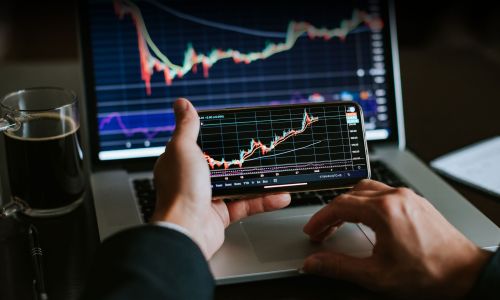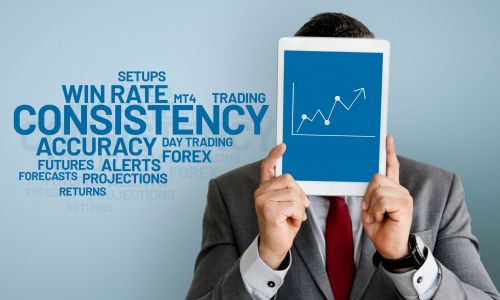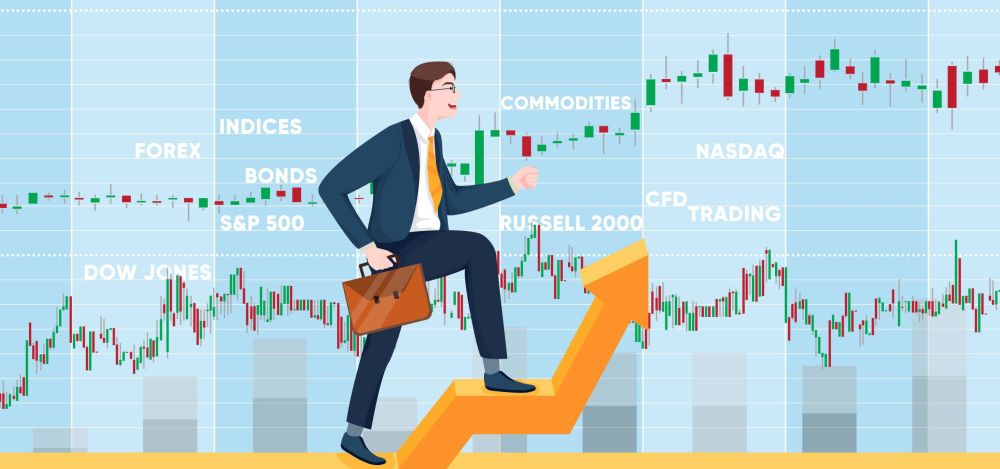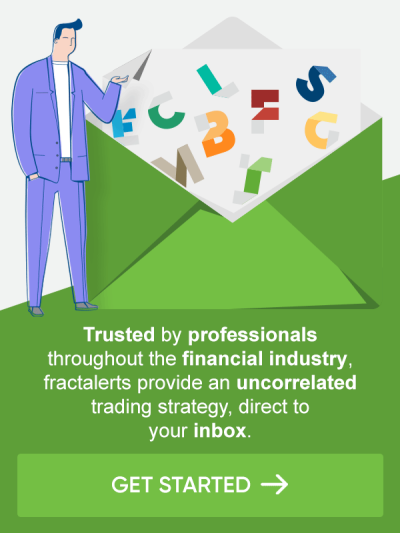Advantages of CFD Trading
CFD’s offer a variety of advantages when it comes to trading in markets like stocks (indices), bonds, forex, and other assets. When utilizing a CFD, there is higher leverage, which creates a lower margin requirement and optimizes the chances for higher returns. There is regulation for the standard leverage in the market of CFDs. This means that there the leverage can change. Currently, it stands around a 3% maintenance margin.
Another advantage of trading with CFDs is that investors have access to the global market. Many CFD brokers offer assets in all the major markets of the world, so you can easily diversify and better your chances for profit.
CFD trading does not have any conditions regarding day trading. Some markets restrict when to day trade. CFDs do not have any requirements, so investors and buyers can day trade as they please.
Brokers for CFDs also do not charge fees despite having similar, if not the same, order types as many other traditional brokers. When it comes to trading CFDs, brokers offer stops, contingent orders, and more- all without the same fees.
Disadvantages of CFD Trading
As with many other economic investments, there are risks. Leverages can vary, and when they increase, they can raise margins, improving your chances to lose money. Additionally, there are liquidity risks that you need to monitor and maintain so that your provider does not close your contract before regaining any losses. Overall, CFDs require lots of monitoring, which can be tricky since assets are always changing.
Along with these risks, you need to pay the spread on entries and exits. This reduces your chances to benefit from small changes in assets. The money required to pay the spread cuts into the profits you would get, or it can increase the losses which you would have to pay. Additionally, trading CFDs is not tax-free. Investors need to pay capital gains taxes if they realize any profits.
Finally, a significant disadvantage of CFDs is that there is almost no regulation. That is why, before opening an account, you should research the credibility of the potential broker. There are practically no securities or official governance for this type of trading. So, if you want to get involved and set up an account, you should do so with caution.
Can US Citizens Trade CDFs?
Do you want to get involved in trading CDFs? First, you should ask: can US citizens trade CDFs? If you are one of the 330 million US citizens, then it is illegal for you to open a CFD account. The Commodity Futures Trading Commission and the Securities and Exchange Commission do not allow US citizens to participate because of the lack of regulation along with the fear that citizens may lose too much from leverages.
Some US citizens and residents do turn to contracts for difference despite not being permitted. Some trade CFDs online with offshore brokers, but they must find a trustworthy and regulated broker. Many well-regulated brokers do not even make themselves available to having accounts with US citizens. Therefore, anyone living in the US, or anyone who is a citizen, cannot trade with offshore brokers in markets like forex, futures, and more.
Getting Involved with CFDs
If you are not a US citizen and currently do not live in the United States, then you are permitted to open an account and get involved with trading CFDs. Although the process of getting involved seems straightforward, there are some complications and risks to it all.
First, you need to find a reliable broker. It is essential to see if they are regulated and to make a note of their platform to see if it fits your trading criteria. Currently, there are so many brokers available that can help you start your journey to success.
Next, after deciding on a good broker, you need to open an account. The amount of money in the first deposit determines the leverages and the tools offered to better your chances of getting more profit from the securities. After opening the account, you should find a market that you have confidence in and then determine the margin you want. The market you choose dictates the securities in which you are involved. Some of these can be from markets like forex, stocks, commodities, and more.
After completing all the necessary steps to creating your account, you need to add a stop-loss to your securities. This helps prevent losses to your trade so that you can see more significant benefits and profits. When you think that you received the most benefits, exit your position. The timing of the exit can make or break your earnings.
Remember: there are a lot of benefits to participating in trading CFDs. You can come out of your trading experience with valuable securities and beneficial profits. However, it is crucial to recognize the risks. You must pay taxes if you receive any benefits, and leverages can shift to affect your assets negatively. Additionally, US citizens cannot trade CFDs because of their risky and unregulated nature.
If you are a US citizen, you do not have to feel left out. There are many other ways to get involved in economic trading and securities. Many other countries take the same cautious steps toward CFDs, such as India, Hong Kong, Brazil, and Belgium. So, if you are a US citizen, stay on the wary side and avoid CFDs. If you are not a citizen, then you can utilize the beneficial contract and get the most out of your securities.
-

The rhytm beneath the noise
-

You Don’t Need a Trading Style. You Need an Edge.
-

Consistency Isn’t the Goal—It’s the Outcome
-

What 2 Quadrillion Data Points Told Us
-

Math and Physics-Based Trading in Any Market Condition
-

Do not worry about anomalies
-

Consistency should not be the goal. Consistency should be the result.
-

Stop canceling fridays
-

The Elliott Wave Forecast is Subjective, Bias Driven And Backwards looking
-

Finding patterns in market data

